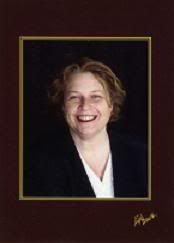Sometimes people dig their heels in really hard when there are changes in the litury. HOWEVER, change can be good. For example, in '62 there was a change in the EF which allowed for the use of a Gallician Preface for the season of Advent. Prior to that, the preface wasn't in use in the Tridentine Mass.
The Galliican Rite was the common liturgy in Gaul [i.e. France] -- these Gallican prefaces were supercede in the eight century by the Roman Rite. In 1962 there were several Gallician Prefaces approved for use are: Preface for the Dedication of a Church, Preface of the Most Blessed Sacrament, Preface of St. John the Baptist, Preface of All Saints and Holy Patrons, and the Preface of Advent.
There is an excellent article in the Catholic Encyclopedia about the origins of Advent here. There is NO liturgical support for the claim that the 4 weeks of Advent represent 1 week for each "supposed" millenium from what was then sometimes construed as the "dawn of time" before the birth of Christ. [And no, smart sailors DIDN'T think the wolrd was flat in 1492.[
Prior to '62 the Preface said had been the common Sunday Preface for the Holy Trinity.
The Advent Preface is:
""It is truly meet and just, right and for our salvation, that we should at all times and in all places give thanks to Thee, Holy Lord, Father Almighty, eternal God: for through the Mystery of the Word made flesh, new radiance from tThy glory hath so shone on the eye of the soul that the recognition of our God made visible draweth us to love what is invisible. And therefore with Angels and Archangels, with Thrones and Dominations, and with all the hosts of the heavenly army we sing a hymn to Thy glory, evermore saying: [Holy, holy, etc.] "
The priest can still chose to do the Preface of the Holy Trinity - (the one that's normally done on a Sunday.)
Subscribe to:
Post Comments (Atom)



No comments:
Post a Comment
You can post anonymously, HOWEVER, please sign with a moniker like Jack or Jill-of-the-Amazing-Wolverine-Tribe, so I can tell one anon. user from another.